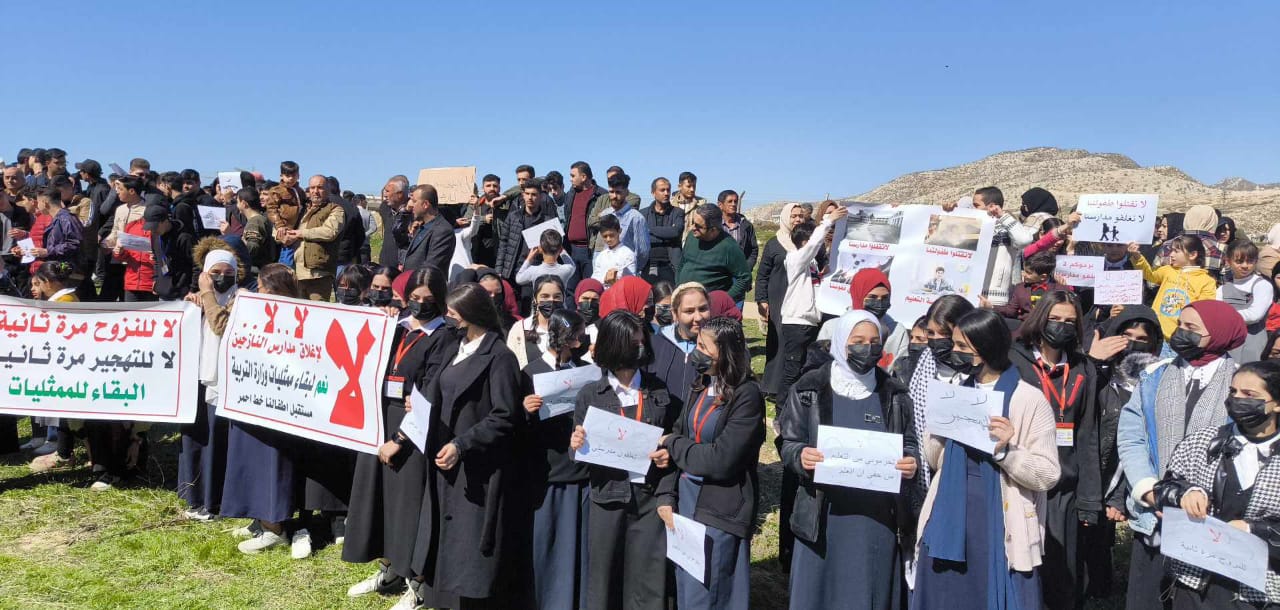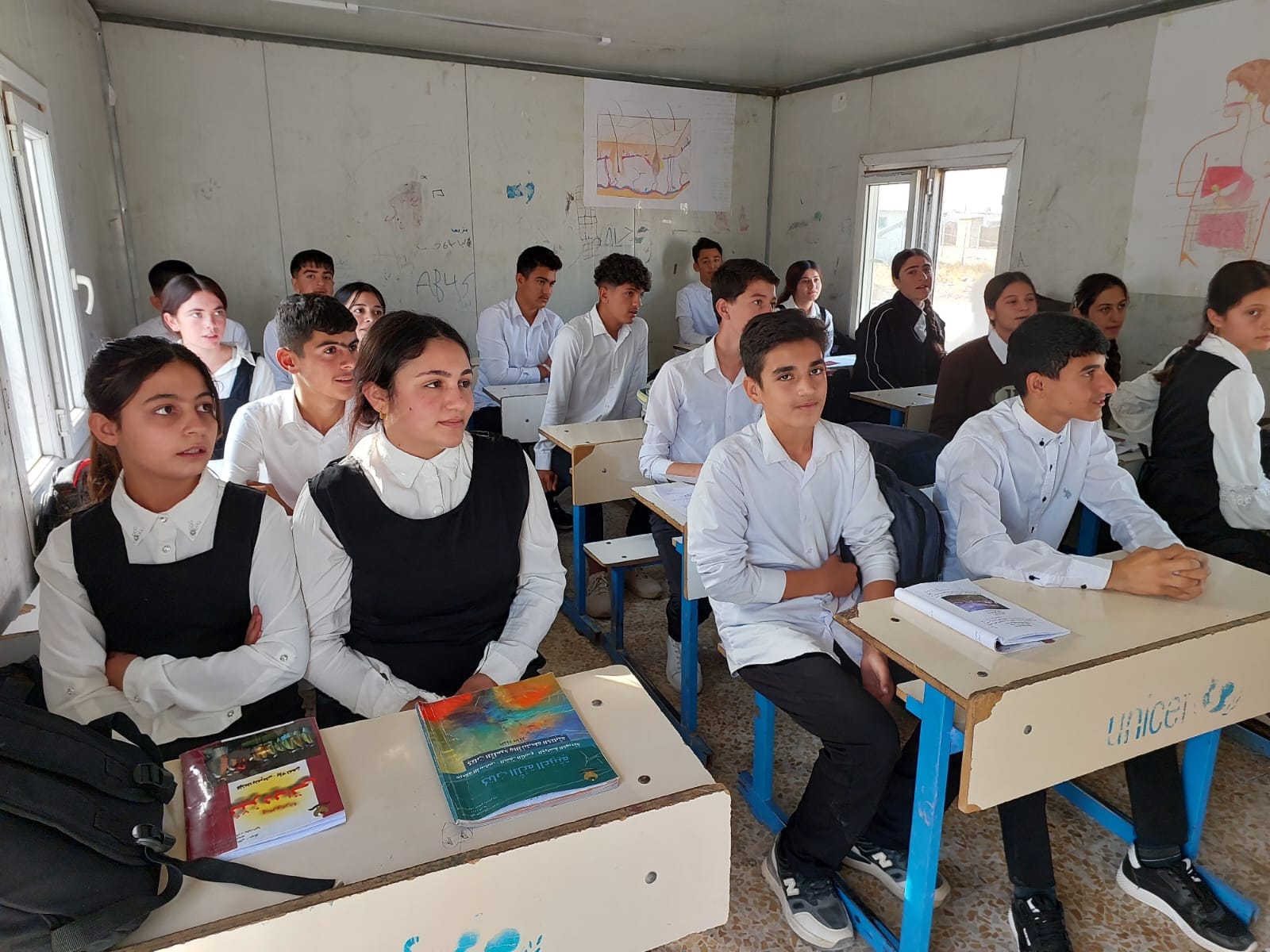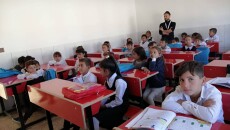The Iraqi Ministry of Education decided to close all its representations in the Iraqi Kurdistan Region IKR where 155,000 pupils will be deprived of studying.
The Iraqi federal government decided to close all of its representations in the IKR including the representations of the Iraqi Ministry of Education, which supervises the schools that were opened 10 years ago for the internally displaced persons IDPs, which currently include 155,000 students.
The decision will be effective from August 1st as part of the Iraqi government’s efforts to force the IDPs to return to their original areas. However, the decision aroused the anger of the students and their families, as some of them organized a protest gathering in front of the Mosul Education Representative Office in Dohuk Northern Province.
Asaad Suleiman, one of the demonstrators’ representatives, told KirkukNow, “The decision is a great injustice against the IDPs because a large portion of them are unable to return. Therefore, we demand that the government reconsider its decision. If the decision is implemented then we will have two options: either to leave school or to return.
“We are forced to return home."
"Our area has not yet been rehabilitated. We suffer from many problems, such as electricity and water, so we cannot return. Forcing us to return contradicts human rights standards," added Suleiman, a resident of Shingal (Sinjar), west of Nineveh, home to the non-Muslim Ezidi (Yazidi) community.
The Iraqi Ministry of Immigration and Displacement decided to end its duties in the camps for the IDPs at the end of July 2024, based on the Council of Ministers’ decision regarding the return of the displaced, which includes a series of other measures, as increasing the financial grant allocated to each family from 1.5 million Iraqi dinars IQD (USD1,000) to four million dinars.
To implement the decision, the Iraqi government will close all health, education, and other representations in the governorates of Erbil, Sulaymaniyah, and Dohuk.
Studying in schools affiliated with education representations is in the Arabic language. There are 69,000 pupils in Erbil province, 33,000 in Sulaymaniyah, and 53,000 in Dohuk from first grade one to nine.

Pir Dayan Jaafar, Director of the KRG's Migration, Displacement, and Crisis Response Department, told KirkukNow, "The decision will certainly harm the displaced, including pupils. There are several reasons hindering the return of the displaced to their homes."
But the representative of Nineveh in the Iraqi Parliament, Nayef Sidou, expressed his support for the decision arguing, “The decision includes all representations... We condemn those entities and parties that obstruct the implementation of the decision. We do not accept anyone interfering or obstructing the return of the displaced.”
The federal government has shut all 55 camps located in the areas under its authority and exchanged accusations on more than one occasion with the officials of the Kurdistan Regional Government KRG regarding the issue of the return of displaced persons and the closure of camps in the IKR.
There are more than 600,000 IDPs in the Kurdistan Region, some of whom are living under tents in 26 camps, 16 of which are in Dohuk, housing 26,000 families, most of whom are Nineveh residents.
Evan Faiq, the Iraqi Minister of Immigration and Displacement, stressed earlier that the return of the displaced is voluntary, but our duties in the camps will end at the end of next July, because the residents of the camps live in difficult and unhealthy conditions, according to the ministry’s statement.
Muhammad Jassim, head of the Patriotic Union of Kurdistan PUK bloc in the Nineveh Provincial Council, told KirkukNow, “We are aware of the government’s decision, although we support the return of the displaced to their homes but we believe their return should not be rushed. Services must be provided to them before that date.”
“Instead of saying we will close all schools, it is better to say we will reduce the number of schools, according to the number of displaced people, and then gradually close all of them according to a well-thought-out plan.” Muhammad Jassim added.
“The representations cannot be closed while a large number of the displaced are still living in the Kurdistan Region.”






